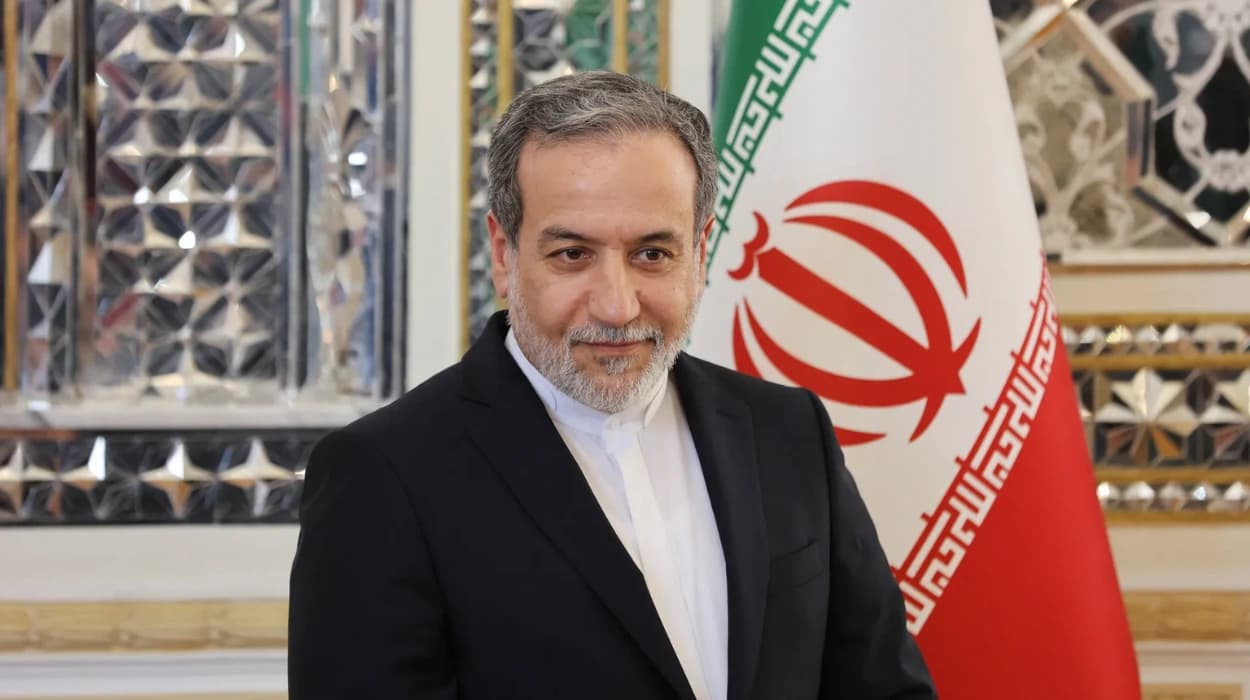Iranian Foreign Minister Abbas Araghchi has condemned the
ongoing genocide in Gaza, urging Muslim countries for urgent Islamic unity and
collective action. He stressed that Israel’s violence threatens not only
Palestinians but the entire Muslim world, calling the current moment critical
for solidarity and strategic cooperation among Islamic nations.
Iranian Foreign Minister condemns genocide in Gaza
As reported by Abbas Araghchi on IranPress, the Iranian Foreign Minister described the situation in Gaza as a full-scale genocide committed against the Palestinian people. Speaking during a cultural festival, Araghchi emphasised,
“The level of hostility and crimes being committed against the people of Gaza and Palestine is a full-scale genocide”
and highlighted the
critical necessity for Muslim unity in this grave moment.
Call for Islamic unity amid crisis
Araghchi underscored that
"No time has perhaps been more critical than now for the unity of the Islamic world,"
framing
Islamic unity as a religious and strategic imperative rather than a mere ideal.
He warned of concerted efforts to divide and weaken the Muslim Ummah,
especially highlighting Israel’s expansionist intentions and the vision of a
“Greater Israel” threatening regional stability.
Referring to the 1500th birth anniversary of Prophet
Muhammad (PBUH) and the International Islamic Unity Conference, Araghchi stated
that this period serves as a vital opportunity to strengthen Muslim solidarity
against external threats and imperialist interference.
Regional and global context of the Gaza conflict
In a phone call with Egyptian Foreign Minister Badr
Abdelatty, Araghchi discussed Israel's continued military campaign and plans
for occupation in Gaza City, describing these actions as part of an ongoing
genocide marked by forced displacement and widespread destruction. Abdelatty
and Araghchi also emphasized respecting peaceful nuclear energy rights amidst
diplomatic efforts surrounding Iran's nuclear program.
Since October 2023, over 64,000 Palestinians have reportedly
been killed, with Israeli forces advancing in Gaza City's most densely
populated areas, sparking international condemnation and warnings from the
United Nations regarding mass displacement and further casualties.
Warning to the Muslim world about Israeli threats
During the 39th International Islamic Unity Conference in
Tehran, Araghchi warned that Israel’s threat extends beyond Palestine to the
entire West Asian region and Muslim world. He accused Israel of sowing division
among Muslims and openly reviving the idea of occupying parts of Egypt, Jordan,
Syria, and Lebanon alongside Palestinian territories.
He described the unprecedented challenges facing the global
Muslim community as being fueled by Israel and Western powers and stated that
unity is not just desirable but obligatory to confront these threats.
Criticism of Muslim world’s response
Iran’s President Masoud Pezeshkian expressed frustration
over the Muslim world's primarily verbal condemnations of Israel’s aggression,
calling for stronger, more cohesive action beyond statements. He emphasized the
heavy responsibility on Muslim nations to unite firmly against Israel to
protect regional dignity and security.
Pezeshkian highlighted the ongoing destruction and loss of
life in Gaza, noting Israel’s occupation expansions into Lebanon and Syria and
urging an end to economic and political ties with Israel as stated by Ayatollah
Seyyed Ali Khamenei. The president criticized some Muslim-majority states for
distancing themselves from Palestinians and accused some cooperating with
Israel diplomatically or militarily.
Iran and Oman urge international intervention
Iranian and Omani Foreign Ministers jointly called for
urgent global action to halt Israel’s genocide in Gaza. They condemned the
military operations and insisted on prosecuting and punishing the leaders
responsible for crimes against Palestinians.
Diplomatic stance and outlook
Araghchi declared that no military solution exists regarding
Iran’s regional issues, advocating for fair diplomacy based on mutual respect
and shared interests. He affirmed Iran’s readiness for dialogue and stressed
the strategic mistake by American and Israeli leadership in thinking military
force could resolve conflicts involving Iran.
He also addressed the use of hunger as a weapon of war in
Gaza, condemning Israel’s starvation tactics against civilians and lamenting
the Islamic world's insufficient reaction to these atrocities. Araghchi warned
the Israeli threat is expanding to Lebanon, Syria, and Iran itself, with Israel
aiming to fracture Muslim unity.
Iranian Foreign Minister Abbas Araghchi’s statements collectively call for urgent Islamic unity in the face of what he described as genocide in Gaza and a growing existential threat to the Muslim world from Israeli expansionism. His remarks emphasize the critical need for coordinated political, diplomatic, and possibly strategic responses among Muslim nations to confront the crisis and defend Palestinian rights.
